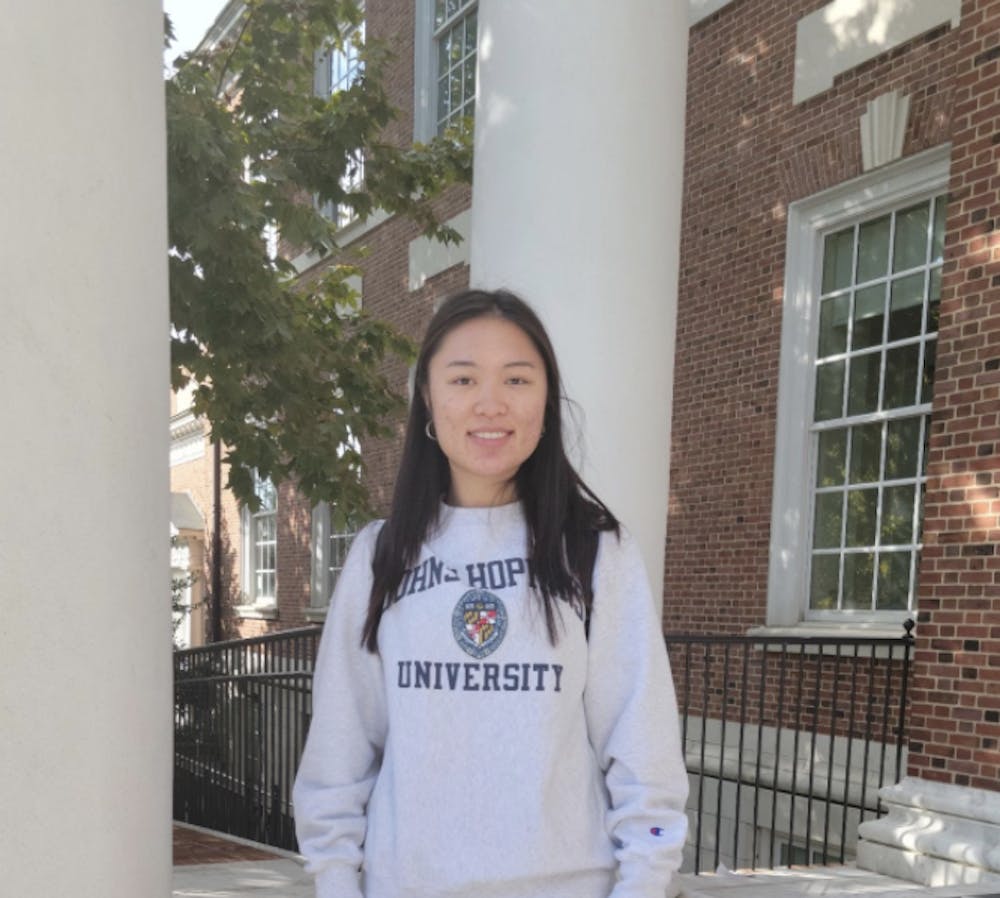“One thing that’s really on my mind these days is the popular Netflix series Squid Game... It’s stuck inside my head because it's really popular. I first heard about it from my Korean class, and I felt like not only Korean but also some other non-Asian friends, everyone is watching [it]. The fact that the series rose to the top of the rankings made this even clearer.”
“Because of this, I started to think about the differences between Korean culture and my culture, Chinese. I'm not a professional in comparing cultures or analyzing films, but all of a sudden I just did a quick comparison in my mind, comparing China’s best movies and Korean movies, Chinese pop music and K-pop songs, about their popularity worldwide. I think because we're in the States now, not in China, not in South Korea, that led me to think about the differences in those cultures.”
“Some Chinese film producers or directors, they never care about the international market because just with the Chinese population, they can have the box office as high as they would otherwise. And when they see some great international [movies] that may have something against their understanding of the world, they'll just block them. It’s the idea of ‘I'm the best, and I don't need anyone else not in our culture to recognize [it]. I do see someone better, but it’s different, so I’ll block it.’ I'm not trying to [go against] my country. I love it; I feel like I am a part of it. But this is some kind of unconscious ideology rooted in the way that we think. Or at least I sometimes behave like that. From high school or before high school, I tended to feel like, ‘Oh, I see something better, but slightly different, maybe the opposite. But I don't want to admit it.’ So I ignored it. You know, we as individuals, we can have ‘blocks,’ but we just ignore it. In simple words, it's kind of like lying to yourself.”
“But as I came here, in such a diverse environment, sometimes you do have to admit that you need to improve on this, or you may need to work harder on that. But it also becomes easier for you to go across boundaries. Actually saying something that’s personal, unique about yourself — it won't be that hard to do.”
“I kind of shifted from a conservative and ‘pushing new and unfamiliar things away’ attitude towards a more embracing attitude. And I also shifted from being very shy and protective of my own ideas towards being more willing to present my thoughts. Because here in the educational system, for example in seminar-style classes, you have opportunities to talk [about] everything. You have more opportunities to present your ideas. And a very good example is this interview. It’s not for a formal report or something, but it shows me that more people are willing or trying to listen to our thoughts. I think that's really amazing.”





